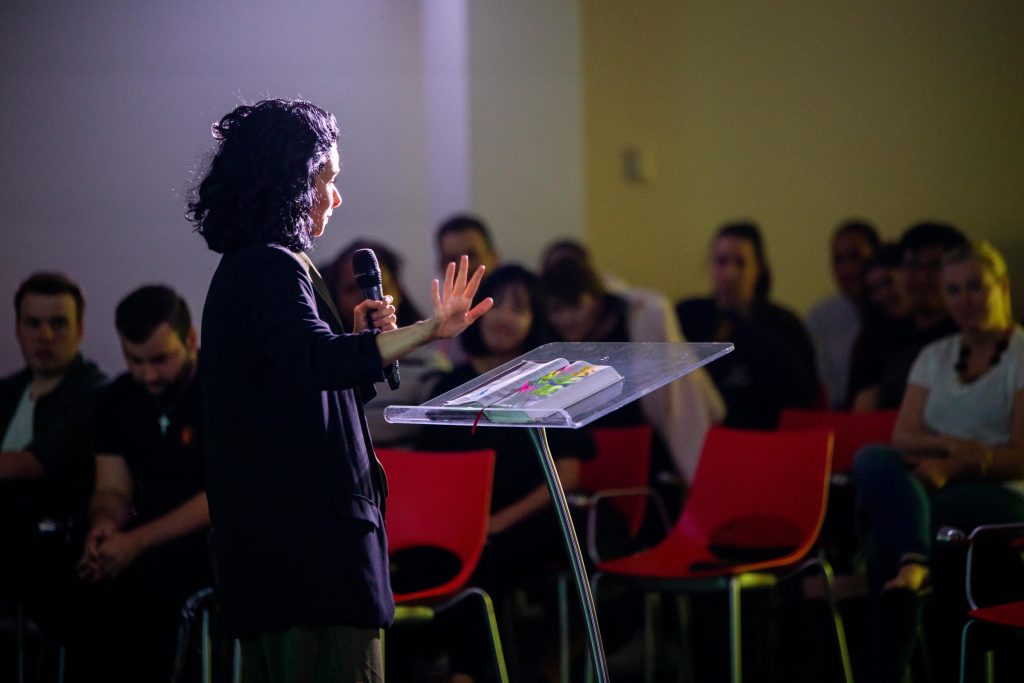This foundational subject offers a broad understanding of the diverse perspectives and practices within worship ministry. It addresses the role of music, arts, and corporate worship in the life of the church and the individual believer. This subject will equip students with knowledge of the theological underpinnings and contemporary expressions of worship, preparing them to effectively participate in and lead worship ministries.
Everyone has their area of passion and preference. This unit is all about you being able to pursue your musical or artistic passion. Dance, drama, lighting, multimedia, sound, instrument, voice, recording, whatever it is, this unit can adapt to help you set and achieve your goals. Learn new knowledge and skills. Master your craft. Challenge your capacity. Grow as an artist.
Through this subject, students will delve into the complex relationship between the Christian church and the creative arts across centuries. This subject examines how the arts have been both championed and constrained by the church. Students will analyse historical music and arts from biblical times to the modern era, gaining insights into their influence on faith and church practices.
As compelling, engaging and consuming as our local church world is... we don't live in a bubble! All humans worship. What does that worship look like for other religions? What impact does that have on the way we worship? This unit explores these questions and many more, from our Judaeo-Christian heritage to the comparative worship of Islam, Hinduism, Buddhism and other world religions.
The words we sing are extraordinarily powerful. Many authors have had things to say about the lyrics of songs sung in church but the arguments are particularly partisan and heated in our present day. Contemporary congregational songs, with their popular musical influences are a hot topic. Are their lyrics inferior to traditional hymns? How should we approach their analysis and assessment? What would Jesus sing?
On the job training... there's nothing like it! This practicum is not just about free help to your church's worship team; it is about encountering the on-the-ground issues that arise daily in building, managing and leading a worship team. Not only will you actively engage with the worship ministry, you will also analyse and assess its strengths and weaknesses and contribute to the improvement of the department.
The unique nature and prominence of contemporary worship music in today's churches is worthy of study. It is a phenomenon that has accompanied the emergence of megachurches, created a substantial sub-genre of the popular music industry and crossed cultural and language barriers. It is certainly necessary to understand what is going on, but equally important to assess its theological, historical, sociological, ecclesial and musical implications.
This transformative subject is designed for those aspiring to lead musical worship effectively within their congregations. It combines theological insights with practical skills, from managing rehearsals to leading live worship sets. Students will also learn to communicate strategically pre- and post-service and reflect on their leadership for continuous improvement.
Explore a comprehensive look into the evolution of music throughout both global and Australian contexts. This unit covers three significant areas: Western Art Music from the Middle Ages to today, the development of Popular Music, and the rich history of Australian Indigenous music. These topics will equip students to discuss and analyse music's transformative journey through time.
The field of musicology dives into the intricate study of music and its complexities. This unit provides students with the analytical tools necessary to examine music through various contexts—historical, cultural, and performative. It prepares you to articulate how music is constructed and perceived, enhancing your critical listening and discussion skills.
Through this unit, you will sharpen your songwriting skills, from lyrical construction to melody formation. You will learn to analyse contemporary songs, develop appropriate content for various genres, and effectively use poetic techniques to enhance storytelling in your music. This comprehensive approach not only boosts your creative process but also guides you through arranging, recording, and understanding the legal aspects of songwriting.
This immersive subject enhances your stage presence and technical skills through practical experience and peer feedback. Engage in solo and ensemble performances across diverse genres, while focusing on key techniques such as managing performance stress and understanding audience perception. This unit ideal for those looking to deepen their performance repertoire and professional readiness in a supportive, dynamic environment.
There is a dynamic relationship between musical expression and technological innovation. This unit explores how technology shapes music production, recording, and distribution. Learn to assess and apply various technologies—from PA systems to digital audio workstations—preparing you to design technologically integrated live events.
Understanding how to perform effectively in a music ensemble can significantly enhance a musician's versatility and leadership skills. This advanced subject equips students to lead as musicians, directors, or conductors, mastering the art of organising rehearsals, critiquing performances, and engaging audiences. It prepares musicians to excel in group dynamics and performance management.
Harnessing creative potential, this subject equips students with the skills to compose original music across various genres. Students will learn to dissect and understand musical elements such as pitch, rhythm, and texture. By synthesising these components, students will be able to express unique musical ideas, select harmonies, and structure their compositions effectively to achieve desired emotional impact.








